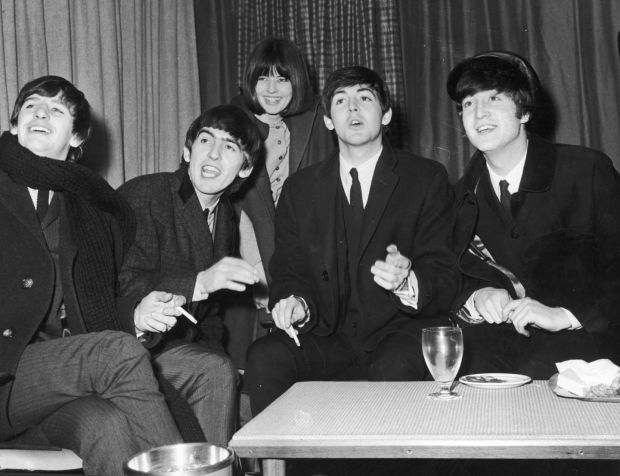Maureen Cleave, Irish-raised journalist behind John Lennon’s ‘bigger than Jesus’ quote, dies aged 87
Maureen Cleave, the Irish-raised journalist best known for her profiles of the Beatles, has died aged 87 after a short illness.
As one of the few young journalists given scope to write about the pop explosion of the 1960s – and with her inquiring, undeferential tone – Cleave helped to kickstart the music journalism that flourished in her wake.
Her most famous encounter came with John Lennon, who told her in 1966: “Christianity will go. It will vanish and shrink. I needn’t argue about that; I’m right and I will be proved right. We’re more popular than Jesus now. I don’t know which will go first, rock’n’roll or Christianity.”
John later wrote: “If I hadn’t said the Beatles were ‘bigger than Jesus’ … well, Lord, I might still be up there with all the other performing fleas.”

Cleave, who died on November 6th, was born in 1934 in India, to an Irish mother, Isabella Mary Fraser Browne, and an English father, Maj John Cleave. In 1940 she was on a ship with her mother and sister Mavis when it was torpedoed. After being rescued by a cargo vessel, they spent the remainder of the war in Co Sligo; Maureen’s mother’s family home was Glen Lodge, overlooking Ballisodare Bay and nestled under Knocknarea.
Maureen was sent to board at Rosleven, in Athlone, “the school for happy children” (as advertised in the Church of Ireland Gazette), “which it jolly well wasn’t”, she reportedly said. She then au paired in Paris before studying history at St Anne’s College, Oxford.
After she graduated was hired as a secretary at London’s Evening Standard. She persuaded the newspaper’s editor, Charles Wintour (whose daughter Anna Wintour went on to become the renowned Vogue editor) to give her a column on pop music, entitled Disc Date. In 1963 it enabled her to visit Liverpool, where she documented the growing Beatlemania in a piece headlined “Why the Beatles create all that frenzy”.
In the coming years she continued to write about the group, and befriended them. She later described them as “more fun than anyone else and terrible teases. The interviewer was outnumbered four to one: they might put your coat in the wastepaper basket, offer to marry you, seize your notebook and pencil, pick you up and put you somewhere else, demand you cut their hair … On the other hand, they were often kind, offering you cigarettes or a swig from their bottles of Coke, making sure you never got left behind.”
In September 1966 she married Francis Nichols, whose work took the couple to Peru for a spell in the late 1960s. After returning to the UK, Cleave continued her journalism career, also writing for the Daily Telegraph and Observer, among others.
Cleave was diagnosed with ME in the 1990s, and with dementia after her husband’s death, in 2015. She is survived by their three children.
irishtimes

